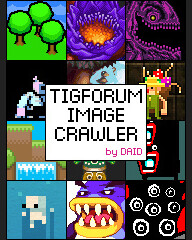Gravitation
By: Derek Yu
On: March 1st, 2008
Jason Rohrer, the creator of the moving and bittersweet Passage, has released a new game, called Gravitation. The basic theme behind Gravitation is “mania, melancholia, and the creative process.” To say any more, of course, could potentially ruin the experience, but I can recommend it highly.
(Thanks, Phil Fish!)
-
Skofo
-
Squidi
-
Zeno
-
http://www.ericmcquiggan.com TeamQuiggan
-
David
-
http://biphenyl.org/blog biphenyl
-
konjak
-
Chris
-
Derek
-
valzi
-
valzi
-
gustav
-
mots
-
OrR
-
Alec
-
Mischief Maker
-
Lackey
-
gustav
-
konjak
-
Zaphos
-
mots
-
Derek
-
Codas
-
gustav
-
Squidi
-
Gold Cray
-
drew
-
failrate
-
valzi
-
http://www.ericmcquiggan.com TeamQuiggan
-
deadeye
-
Derek
-
drew
-
Squidi
-
Paul Eres
-
mots
-
GirlFlash
-
http://burningcurtain.blogspot.com Billy King
-
BigBossSNK
-
Blueberry_pie
-
deadeye
-
OrR
-
BigBossSNK
-
Paul Eres
-
deadeye
-
http://www.cougarcoot.org Lester
-
deadeye
-
BigBossSNK
-
menotknow
-
mots


